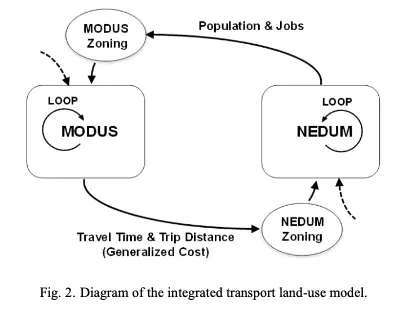Evaluation of Ridesharing Impacts Using an Integrated Transport Land-Use Model: A Case Study for the Paris Region

Abstract
Ridesharing has attracted considerable attention in recent years, as a simple, relatively inexpensive, yet efficient way to curb greenhouse gas emissions in the private transport sector. This is in particular the case in the Paris region: as the road network is increasingly congested, leading to more and more frequent heavy air pollution episodes, local authorities seek to promote ridesharing in order to improve travel conditions and mitigate the environmental impact of road traffic. This research seeks to assess through sensitivity analysis what is the potential of ridesharing regarding these two points, namely reducing congestion and mitigating pollutant emissions, in the case of the Paris region. The effects of various ridesharing scenarios will be investigated by using an integrated transport land-use model and by considering each of the following mechanisms successively: 1) traffic assignment, 2) mode choice, 3) distribution. Results include a quantitative assessment of what level of ridesharing is reached to observe significant improvements regarding congestion and pollutant emissions, and on which trip segments (e.g., purpose and range) should one focus the efforts to do so. A step by step decomposition of the effects will also help better understand the various implications of ridesharing on the urban system as a whole.